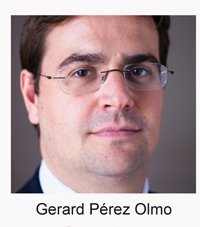Benefitting from Portugal’s new Competition Court – Marques Mendes & Associados
The creation of a new dedicated Competition Court may significantly alter how appeals of the national competition authority are determined
Significant change is proposed to the way competition issues are determined in Portugal with the creation of a dedicated Court of First Instance, says Mário Marques Mendes, of Marques Mendes & Associados, in Lisbon.
“Traditionally the Lisbon Commercial Court had exclusive competence to decide appeals from the decisions of the Autoridade da Concorrência (AdC). But court reforms in 2008 granted this jurisdiction to the territorially competent courts, meaning that – should this have entered into full force – cases would be brought before Judges with relatively little experience of competition issues.”
The Judges in the Lisbon Commercial Court had developed increased expertise in competition cases, he says, but it soon became overburdened with other non-competition matters. And though the 2008 reform was not fully implemented, it was superseded last year by a new Act creating a new Court, dedicated to competition, regulatory and supervision matters.
“This Court will again become the exclusive forum for appeals of AdC decisions, although why it is to be located in Santarém, north of Lisbon, was never fully explained,” says Marques Mendes. “Its creation is obviously welcomed. However, the fact that it is to share competence with regulatory and supervision matters leaves room for concerns as to how each area will be handled.”
Each area raises different types of issues, questions and problems, under different legal frameworks, which necessarily require different solutions and types of approach, he says. How this will be reconciled will only be known when the Court becomes functional.
“The Court is a positive development, and will help increase the clarity of decision-making. But also required, among other things, are Judges with sufficient training to decide the legal issues and understand the economic arguments, and a body of support staff that includes experts in areas like economics and accountancy.”












